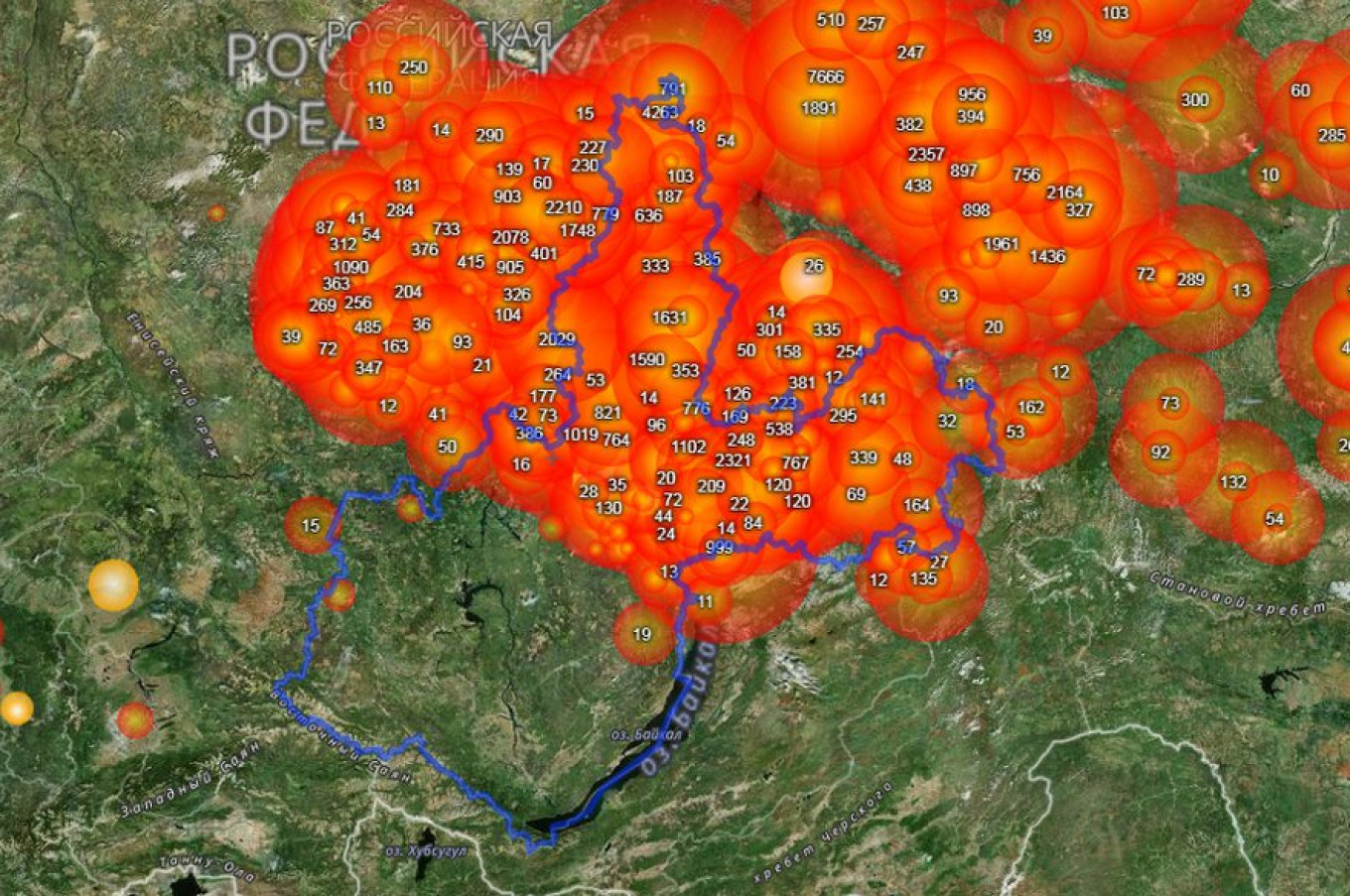Massive wildfires sweeping through Russia have spread to an area the size of annexed Crimea as regional authorities have been slow to declare emergencies and firefighting efforts have been scaled back.
Scientists have observed an “unprecedented” number of wildfires in Siberia and the Russian Arctic since June. Russian authorities have said a combination of lightning and human activity may have sparked the flames.
More than 2.7 million hectares of remote forest is currently burning across six Siberian and Far East regions, according to Russia’s Federal Forestry Agency, an area roughly equal to the size of Crimea.
Regional emergency authorities have opted against extinguishing the more than 300 forest fires that are engulfing hard-to-reach areas, saying inhabited areas are “not under threat” and “projected extinguishing costs exceed their projected harm.”
Only the Krasnoyarsk and Irkutsk regions have declared states of emergency while Russia’s republics of Buryatia and Sakha have kept the emergencies within single municipal districts, the forestry agency said.
It’s “pointless and at times even harmful” to try to extinguish the flames, Krasnoyarsk region governor Alexander Uss was quoted as saying by the Vedomosti business daily. Speaking at a youth forum on Sunday, Uss compared the wildfires to a summertime equivalent of winter blizzards.
Greenpeace Russia estimated the wildfires’ coverage at more than 3 million hectares, “an area that increases by hundreds of thousands of hectares every day.”
More than 11 million hectares have been affected this wildfire season, Greenpeace Russia said in a statement Friday, calling on the authorities to step up firefighting efforts in the affected areas.
Smog has reached major cities in the wider region, leading to a rise in complaints about air pollution and images showing residents wearing smoke masks on social media. President Vladimir Putin’s envoy in Siberia has said that there is no need to declare an emergency unless allowable limits of carbon monoxide concentration were exceeded.
 irk.ru
irk.ruNearly 130,000 people have signed the Greenpeace petition while almost 400,000 online users signed a change.org petition demanding that the authorities declare a state of emergency.
The English-language hashtag #SaveSiberiaForests landed in the top spot on Russian Twitter on Monday, replacing its Russian-language equivalent that dominated the social media platform for days.
